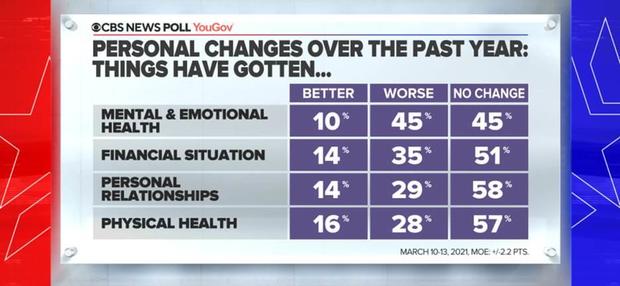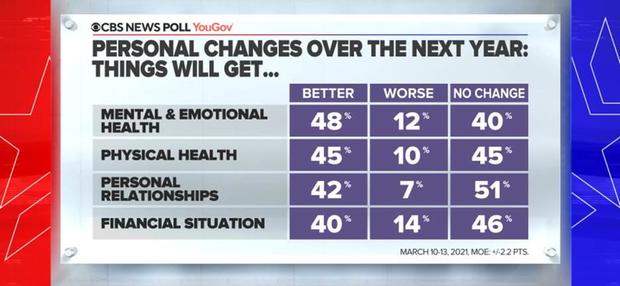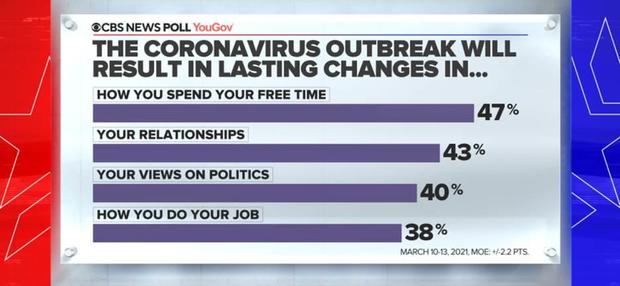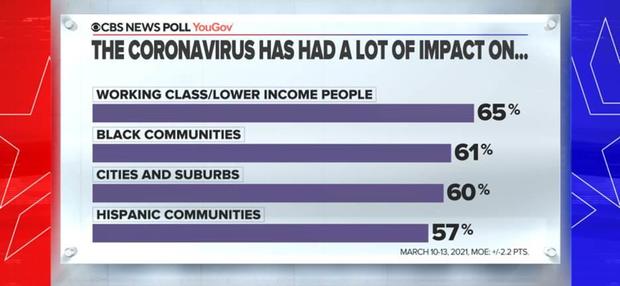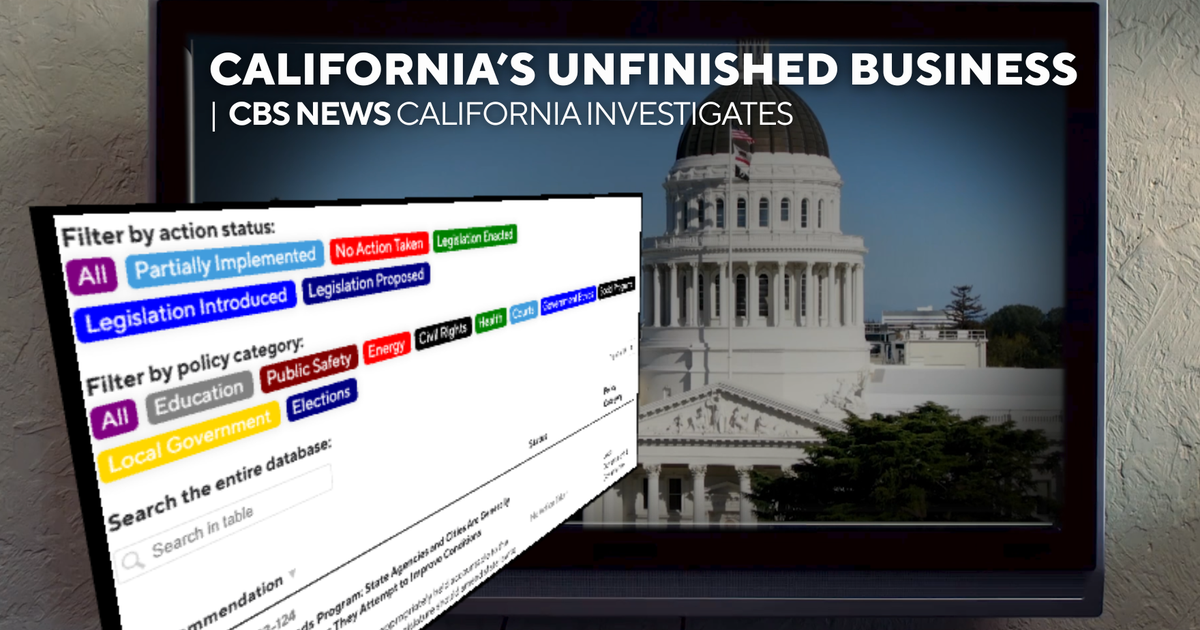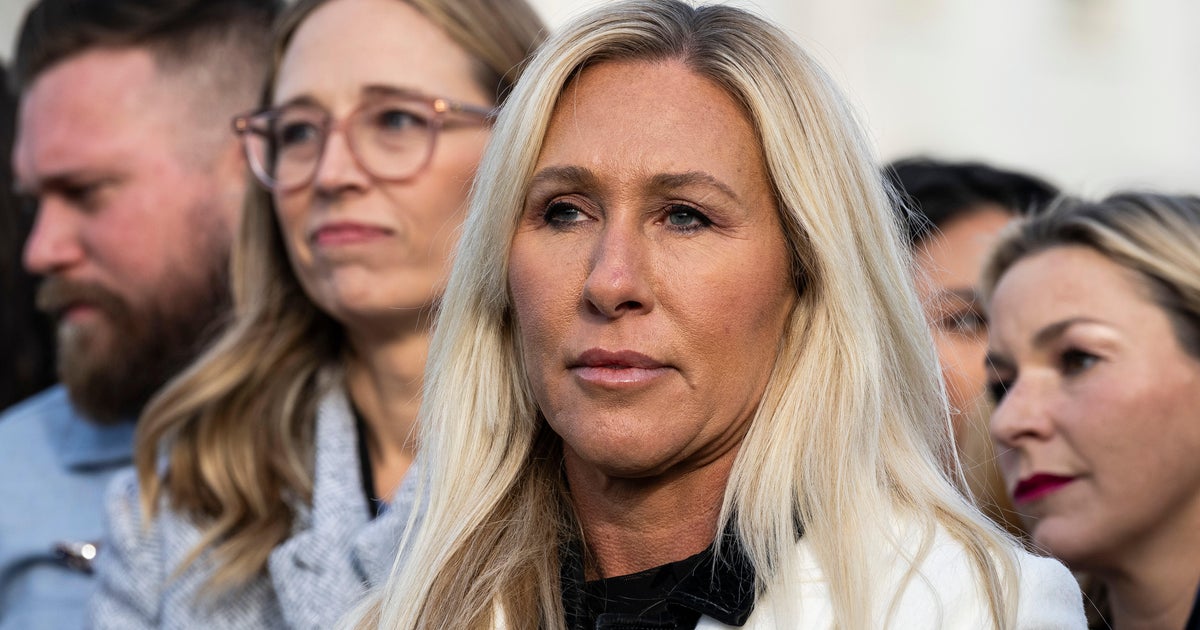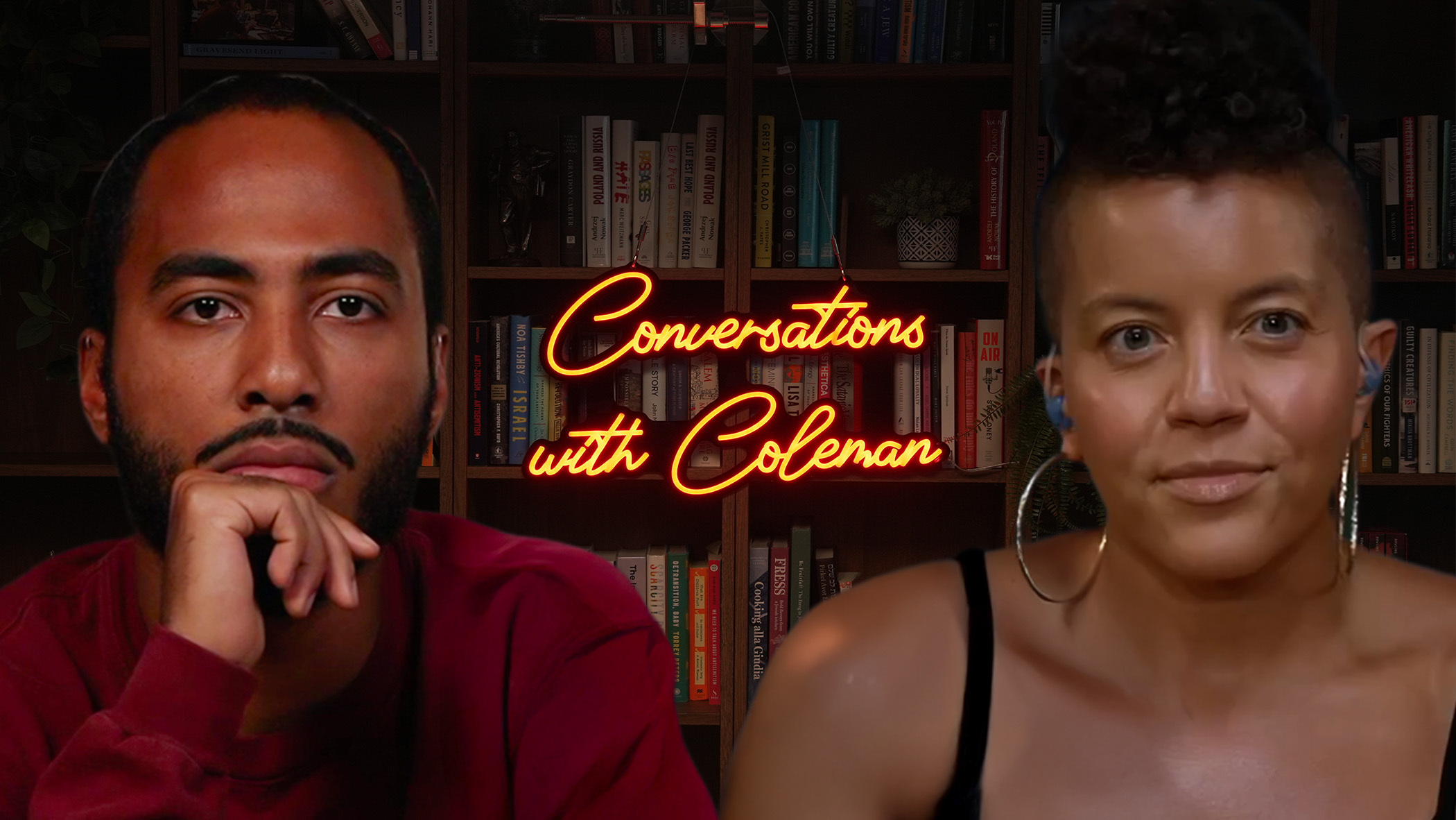After year of pandemic, Americans see changed lives and disparate impact — CBS News poll
Americans report seeing their lives transformed in myriad ways over the past year — from the loss of loved ones, to an impact on their finances, to the toll the year has taken on their mental and emotional health. Many see the changes as permanent, particularly in regards to how they view their relationships and how they will spend their free time going forward.
And as Americans look back, a majority see the nation's efforts to contain the coronavirus as largely unsuccessful. Most believe that some groups of Americans were affected more than others, and that both the decisions that people made and systemic inequalities are at least partially to blame for that.
More than eight in 10 Americans say their day-to-day lives have been impacted at least somewhat by the coronavirus pandemic, and the impact of the outbreak has been felt in many different ways. Nearly half of Americans (45%) say they themselves or someone close to them has gotten ill from the virus, and one in five say a close friend or relative has died from COVID-19. Black and Hispanic Americans are particularly likely to have a close friend or relative who has died from the virus compared to White Americans.
Many Americans have felt a financial impact as well. Thirty-eight percent say someone in their household has suffered financial hardship, and 26% say someone in their household has lost a job as a direct result of the coronavirus outbreak.
For many Americans, it's not just their finances that have taken a hit. Nearly half say the outbreak has taken a toll on their mental and emotional health, and nearly three in 10 say it has negatively affected their personal relationships and their physical health. Many Americans have seen no change, and some Americans have even seen positive changes in these areas, though far more say these things have gotten worse than better.
But on a more positive note, many Americans also see improvement on the horizon in each of these areas. Nearly half expect that over the next year, their mental and emotional health will improve, and many also expect their physical health, personal relationships and finances to get better. And while many don't expect much change, very few expect things to get worse.
Still, some Americans think their lives will be permanently changed in some ways as result of the outbreak. Nearly half — 47% — think how they spend their free time will never be quite the same again, and 43% say there will be lasting changes in their relationships with other people. Nearly four in 10 see a lasting impact on how they view politics and the way they do their job.
One other thing that may be here to stay is video conferencing. Six in 10 Americans say they now use video conferencing software or apps like Zoom and FaceTime to connect with friends, family members and work colleagues. Though many expect to cut back on their usage, most expect to continue to video conference as much or more than they do now.
And after a year of the pandemic, many Americans are feeling a range of emotions as it relates to the coronavirus — a mix of exhaustion and stress, but also gratitude.
People who say their day-to-day life has been impacted "a lot" by the virus more often feel "sad" than "happy," and more feel "stressed" than "calm. Those most impacted are more likely to be "exhausted" than those whose lives have been relatively less impacted by the pandemic.
Though most Americans say their lives have been affected by the outbreak, most Americans also believe the outbreak has impacted some groups more than others. Majorities of Americans think the outbreak has had a lot of impact on working class and lower income people, Black and Latino communities, and cities and suburbs. In comparison, only a third think it has had the same impact on White communities and rural areas, and just 15% think wealthy and higher income people have felt a lot of impact.
Americans widely believe that one reason the coronavirus has impacted some communities more than others is the fact that some people just live and work more closely together in some places, but majorities also see these differences as a result of decisions people made, from Americans not wearing masks or taking proper precautions to decisions by political leaders and elected officials, including either not implementing lockdowns or lifting them too soon. But most Americans also see more systemic causes, such as unequal access to health care and economic and racial inequality, as reasons some people have been more affected by the coronavirus than others.
Though Republicans do agree that the virus has affected some communities more than others, they differ with Democrats and independents as to why. Like other Americans, most Republicans think both people not taking proper safety precautions and decisions made by elected officials are partly responsible, but most don't see lifting lockdowns as a contributing factor, and most Republicans reject the idea that larger systemic issues like economic or racial inequality and access to health care have played a part. Instead, six in 10 Republicans think the reason the virus has impacted some communities more than others is partly a result of chance or just the way nature works, something most Democrats and independents reject.
In response, large majorities of Americans think added federal resources should be allocated to people and places that were most affected by the coronavirus, such as additional vaccine distribution, preventative health screenings and medicine, additional monetary aid, and health care facilities and services. Republicans, like Democrats and independents, largely agree, though most stop short of advocating additional monetary aid.
Looking back on how the U.S. handled the outbreak overall, six in 10 Americans think that efforts to contain the virus were unsuccessful, and that cuts across racial groups, income levels and the type of area where they live. But there are partisan differences: while two-thirds of both Democrats and independents think the efforts were unsuccessful, six in 10 Republicans consider U.S. efforts to be a success.
When asked why they thought U.S. efforts were unsuccessful, those who think so said the U.S. could have generally done a better job of it, and that too many people got ill or died. To a lesser extent they also say the economy was hurt and that too many people lost their jobs, and this is the top reason given by Republicans who don't consider U.S. efforts to be success.
For the minority of Americans who think U.S. efforts to contain the outbreak were a success, the speedy development of the vaccines is the chief reason they cite, though the Republicans among this group also say that the U.S. did the best that it could.
This CBS News survey was conducted by YouGov using a nationally representative sample of 2,382 U.S. residents interviewed between March 10-13, 2021. This sample was weighted according to gender, age, race and education based on the American Community Survey, conducted by the U.S. Bureau of the Census, as well as the 2020 presidential vote and registration status. The margin of error is ± 2.2 points.

